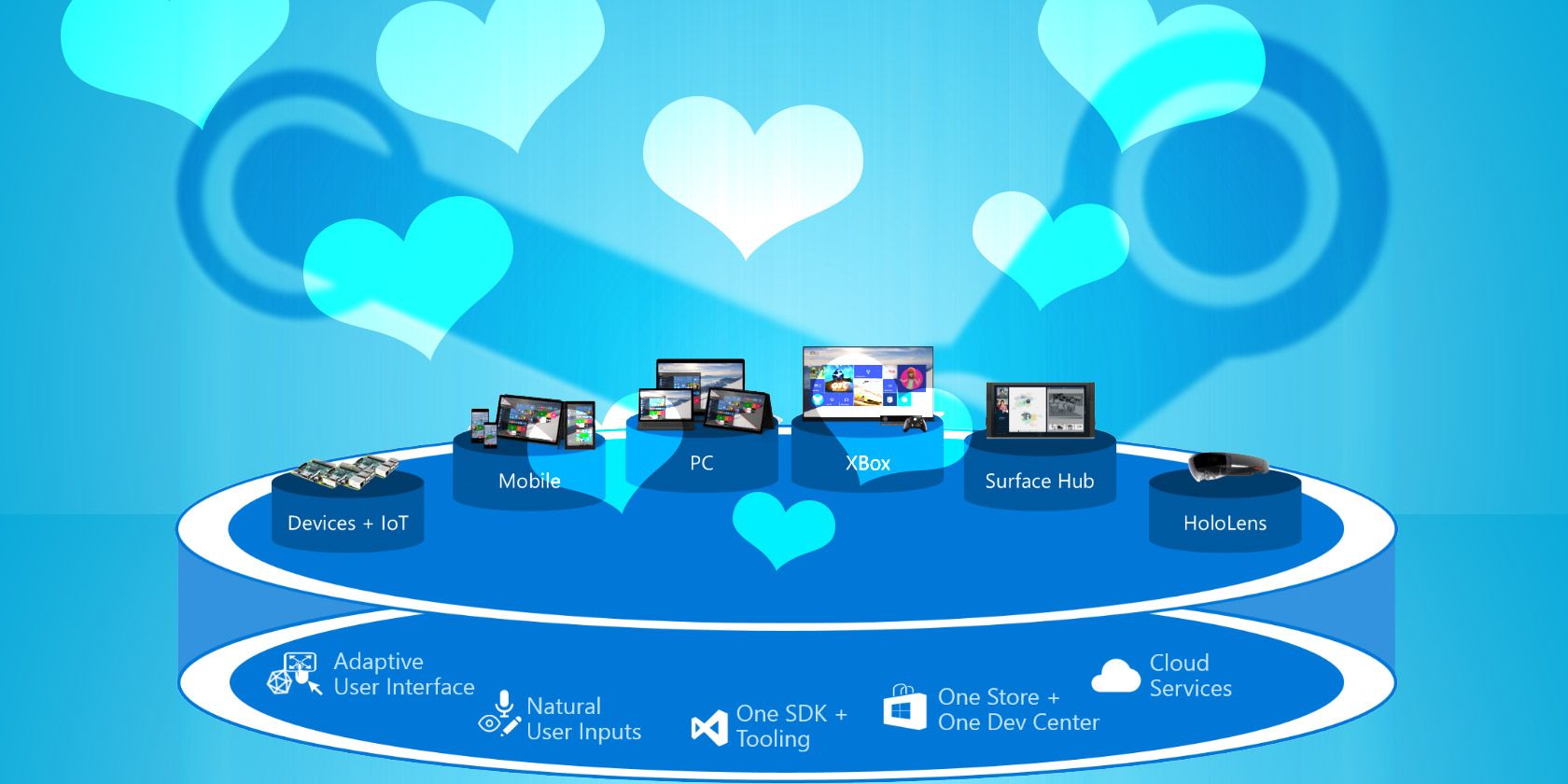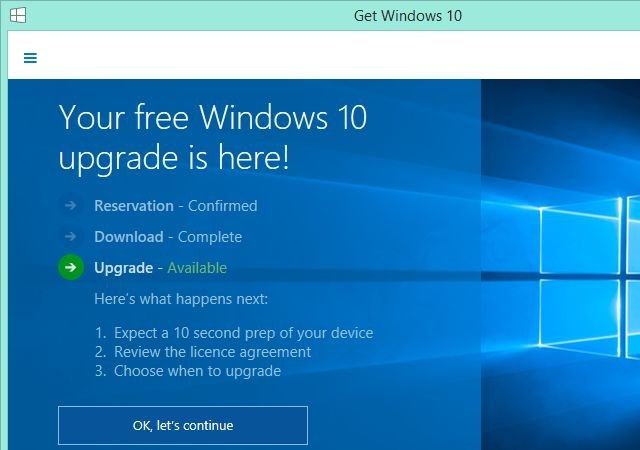Oh dear. Microsoft is at it again.
Microsoft reverted to its old anti-competitive behavior, and is now trying to use its market dominance to exert Apple-style control over the distribution of apps and games. At least, that's the argument made by Epic Games co-founder Tim Sweeney in a blistering editorial published in the Guardian.
His quarrel is with Microsoft's Universal Web Platform (UWP) initiative, which he describes as a "fiasco" and "the most aggressive move Microsoft has ever made".
Tim Sweeney is really worried about UWP. But you shouldn't be. Read on to find out why.
What Is Universal Windows Platform?
At the core of Microsoft's app strategy is Universal Windows Platform. Essentially, it allows developers to write apps that target the full range of the Windows ecosystem - from tablets, to computers, to even the Raspberry Pi 2.
It seems reasonable, doesn't it? But the devil is always in the details, and UWP is not without its fair share of controversies. For starters, UWP apps can only be sold through the sorely deficient Windows App Store, where Microsoft takes a 30% cut of sales.
Tim argues that this is ultimately anti-competitive, as it prevents developers from selling directly to consumers, as has traditionally been the case. It also locks out third-party app stores, like Steam, Good Old Games (GOG), and Unity. It essentially gives Microsoft a monopoly on the distribution of Windows software, much like Apple has on the iPhone.
Admittedly, since November, it has been possible to side-load UWP applications on Windows. However, this process isn't widely advertised, and is intimidating to non-technical users.
Locked Features
Another one of the concerns raised by Sweeney was Microsoft will eventually use their control over UWP as a weapon to cripple non-UWP software. This concern is understandable. The corporate history of Microsoft is filled with them doing similar things, and getting chastised by the government (or their users) as a result.
In the 1990s, Microsoft was accused of crippling third-party browsers by limiting their access to vital system APIs (Application Programming Interfaces). This resulted in the government of the United States actually suing Microsoft, and forcing them to open their APIs.
It's perhaps because of this lawsuit that we have as much choice of browsers as we have today.
For a more contemporary example of Microsoft using its dominance to hinder third-parties, you need only look at Windows RT. This was Microsoft's ill-fated attempt to release a locked-down, ARM-compatible version of Windows, which would compete with the iPad.
Microsoft didn't allow browsers other than Internet Explorer to access a software process called Just In Time (JIT) compilation. This essentially made it impossible for them to handle JavaScript, which is a crucial component of most websites. It essentially made Internet Explorer the only viable web browser for Windows RT.
Sweeney worries that as Microsoft continues to develop UWP, it will include features (or performance enhancements) that aren't available to non-UWP apps, thereby disadvantaging them.
Ironically, the few UWP games available to buy are themselves crippled, by virtue of them being UWP games. Take Quantum Break, for example, which will be released shortly as a Windows App Store exclusive.
Because of the limitations established by Microsoft in designing UWP, gamers will not be able to create custom mouse or keyboard bindings. They will not be able to create or install third-party modifications. There's also no support for SLI or Crossfire, which is found on high-end gaming systems.
Could Microsoft Ever Replace Steam?
Microsoft was able to shift tens of millions of copies of Windows 10 because they essentially gave it away for free, rather than selling licenses to end-users.
While this is great for Microsoft's user numbers, it's not great for their bottom line, and Microsoft now has to recoup the missing income. So far, they have experimented with integrating service like Bing tightly into the operating system, and displaying adverts on the lock screen, and elsewhere. One of their biggest potential money-spinners is their app store. Unfortunately, it hasn't taken off.
One of the main reasons why, is that, unlike on Android and iOS, users have a choice. Microsoft, like Apple, has found it difficult to build a compelling alternative to the existing distribution systems.
But there's also the fact that these distribution systems, especially Steam, are inherently better than anything Microsoft could offer.
Take Steam. Valve's wildly popular games distribution service has been around for well over a decade now. They essentially have a captive audience of customers, who have spent years and thousands of dollars building collections of games, which cannot be ported to rival services. I'm hardly a gamer myself, and I own well over 120 Steam games. This means I'm almost certainly never going to move elsewhere.
Steam's hard product, while shaky at first, is amazing, too. They've perfected every aspect of the gaming experience, from delivery, to non-intrusive DRM, to customer service. They've included value-added extras, like trading cards and achievements. They've embraced the modding community with open arms, and made it easier for end-users to download third-party code.
It makes sense that Microsoft feels threatened by Steam. They've got a mature, solid product, which people love, and it earns them a lot of money. It's allowed Valve to become a hyper-profitable games company, despite not releasing all that many games.
You could be forgiven for speculating that Microsoft would use their muscle to disadvantage Steam, and other third-party distribution networks, in favor of their own offerings.
But it is just that. Speculation.
Nothing to Fear
I can understand Tim's logic. UWP, by design, essentially gives Microsoft a monopoly on distribution.
I can also understand why Microsoft would want to exert more control over their app ecosystem. Not only will it earn them more money, but it also gives Microsoft leverage to raise the quality of Windows' apps, and to improve security.
But despite that, I'm not convinced by Tim Sweeney's argument. At times, it felt a bit like Netflix worrying about Betamax taking all their business. Sweeney is worrying about something that has failed to happen.
Although it's early days, UWP has been a dismal failure. It hasn't caught on, and it won't. Not while the rival offerings are so strong, and while the Windows App Store is so weak. Not while Windows Mobile 10 is yet to be released, and while Windows Phone 8.1 occupies a statistically insignificant share of the mobile market.
But let's suppose Sweeney's fears come to pass. Let's imagine Microsoft begins crippling non-UWP apps. What would happen?
Well, the uproar would be audible from outer-space. It would be disastrous for Microsoft. Gamers, who are a lucrative market, would move to other platforms in their droves, like Steam OS, mainstream Linux, and OS X. There would be an immediate uptick in console sales.
It's also deeply uncharacteristic for post-Balmer Microsoft, which is trying to reinvent itself as an open and collaborative company. Microsoft is trying to court users of Linux, and especially OS X, with new applications and services. They're working on Project Islandwood, which allows iOS developers to port their code to Windows. More recently, they acquired Xamarin, in order to make it easier for Windows developers to write applications for iOS and Android, using Microsoft's C# language.
Microsoft isn't the anti-competitive dragon it was in 1999. It's a fundamentally different company. Somebody should remind Tim Sweeney.





